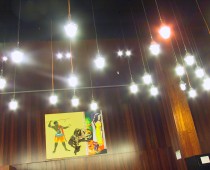
Before a great battle he slept in a chair with one foot on a table
He read Goethe, wrote love letters, short stories, and collected whole countries’ masterpieces into a museum he built to store them (now called the Louvre)
He loved classical architecture from the Greco-Roman era
He never said “an army marches on its stomach” but did obsess about shoes
He never won a battle at sea
He lost four(?) battles on land, one with ‘water’ in the name – and Acre, Russian campaign, and Lepzig.
He commissioned the grandest scientific expedition of his day, to learn about Egypt
He conquered Italy/Naples, Switzerland, Spain, Holland, “Germany”/“Poland”, Austria/Hungary (alliance), Denmark/Norway/Sweden (alliances), and Egypt. He also beat the Turks.
He never landed in England. Didn’t get Portugal. Didn’t win in Russia.
Nelson beat him at Trafalgar and died the same day
His masterpiece is considered Austerlitz, in Austria, where he beat the Russian and Austrian empires in a single battle
The strategy of the central position
L’attaque de la derriere
His hallmarks:
- be fast
- keep forces concentrated
- single language, single supply line, single communication corridor
- singular decision-making
- decentralized execution
- fearless of numerical odds
- divide the enemy
- fight where you have the advantage, even if the time is not of your choosing
Meet the troops themselves
Inspire the spirits of the troops
Keep a reserve, deploy it late
Engage early and wait for the decisive moment
Attack again after a victory
Page 1, Line 1 of the Rules of War: “Do not march on Moscow” (not in his book)

You must be logged in to post a comment.